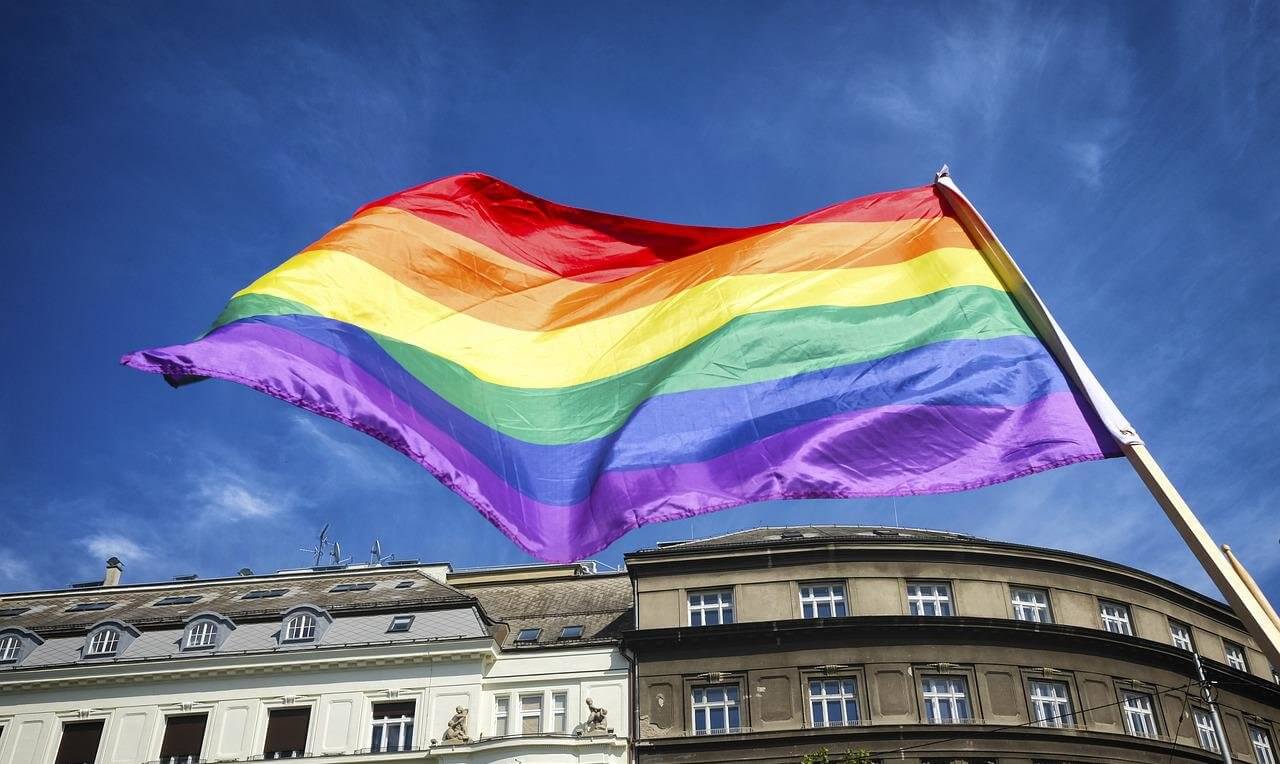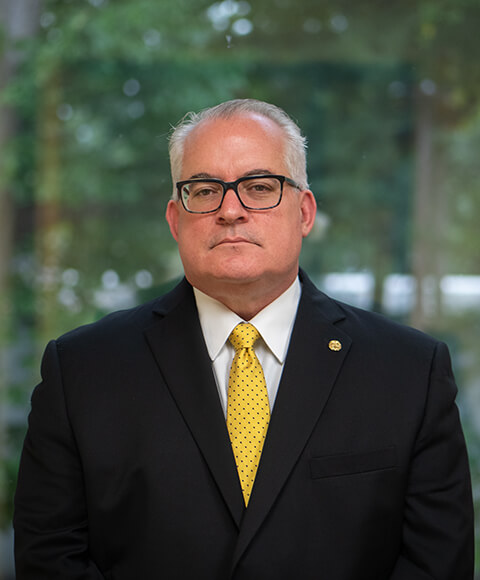In an era of identity politics, Pride Month can be both affirming and gut-wrenching for me, as well as for our federal servicemembers, civilian employees, and contractors who are a part of the LGBTQ+ communities. Affirming as I am—an American queer, gay man at age 57, who at times is just happy to have found a niche in the bar of the District of Columbia—I have seen firsthand much of the discrimination and judgment that takes place in the federal workforce. When I proposed a Pride Month statement from the Defense Department Inspector General in 2011, one senior official remarked at a staff meeting, “LGBT, what’s that, a sandwich.” He still works for the Federal government.
Over the past decade, there have been many efforts to help identify, recognize, and change the different biases and discriminatory traditions baked into American workplace culture. There is still strong discrimination and animus toward the LGBTQ+ community to this day. According to a study done by the Human Rights Campaign Foundation (HRC) in 2018, 48% of LGBTQ+ workers say they are closeted at work. This is followed by another statistic that one-in-five LGBTQ+ workers reported having been told by a coworker that they should dress or act in a more feminine or masculine manner. Coupled with the top-reported reason that LGBTQ+ workers do not report these negative comments because “they don’t think anything would be done about it,” there is still much work to do in making workplace climates more welcoming to LGBTQ+ people.
Identity Politics and Diversity in the Federal Workplace
In the federal workplace, members of the LGBTQ+ communities—in uniform or in civilian attire—need to remember a central truth: despite inclusion, your protections under law come only after someone else decides how you will be treated. In an era of identity politics, your identity is unfortunately not who you think you are; it is what others decide you are. That is why many LGBTQ+ employees, particularly in law enforcement, remain closeted. When I started practicing law in the District of Columbia in 1995, I was alienated from my peer group and struggled to find a job due to my status as a veteran; when I came out, another set of classifications were applied to me. While others my age were considered for partners, I was cautiously viewed as late to the bar as a veteran or niched to practice areas with clients that would not be offended by queer representation.
While I understood the privilege I was granted—most of which was obtained through national service—was important in positioning me within the District’s bar, this did not stop many firms and federal agency workers from name-calling and slamming doors. Most granted privilege was honored due to the agendas of others. When I started a $4.0 million fundraiser for Cornell University in the 1990s, my hand was shaken by a member of the Class of 1948, who thanked me for my leadership and noted it as a change for diversity. I was Catholic, white, and from an Irish-German American family, but I was diverse because Cornell’s alumni of that era saw Catholics as a minority. On the other hand, when I sat on hiring panels in the Intelligence Community twenty-years later, I was told explicitly that I could not be the diversity representative since I was not a “visual minority”.
This is a hard world to navigate, and given matters of gender, sexual, and relationship identities are sometimes not visible, it is all the more important to know your rights when it comes to discrimination in the federal workplace since it may be more pervasive than you think.
Understanding LGBTQ+ Discrimination in the Federal Workplace and the Equality Act
Currently, there is no federal statute that protects employees from discrimination based on their sexual identity, gender identity, or gender expression. One key piece of legislation that might seek to change this, however, is the Equality Act. The Equality Act is a landmark piece of legislation that would expand federal civil rights laws to protect LGBTQ+ people from discrimination in employment, housing, credit, jury service, and federally funded programs, such as those for health and education, as well as public places and spaces.
The protections we have today are a patchwork of different state laws and federal court rulings. You may be protected at home in Maryland, but not when you cross the Potomac to work at Tyson’s Corner. Furthermore, if you and your partner want to have a child in Charlottesville, you may need to relocate to Baltimore to have the child; the system is barbaric. This legislative hash causes stress for those in the LGBTQ+ communities, as only 31 states explicitly bar discrimination against employees based on their sexual or gender identity in both the public and private employment sectors. This disparity in protections for LGBTQ+ may be why many workers do not choose to be open about their gender or relationship identity or choose not to report any matters of harassment. They would rather suffer through it than risk losing their position or disrupting their relationships with their coworkers.
To further demonstrate this point, in an HRC study, it was stated that around 54% of non-LGBTQ+ workers would be “very comfortable” working with an LGBTQ+ coworker; however, among the same pooled group, 59% of non-LGBTQ+ workers stated that they think it is “unprofessional” to talk about sexual orientation or gender identity in the workplace. What these stats do not generally reveal, however, is that around 65% of workers engage in conversations about relationships in the workplace on a weekly or daily basis. This creates a cautious double standard that only further isolates members of the LGBTQ+ communities. It can strain their relationships with their coworkers and managers even more than they may have originally been.
The stress generated by hiding one’s identity and the perceived negative sentiment generated against their identity is one of the main reasons why overall employee engagement among LGBTQ+ individuals is 30% lower than their cis counterparts and one-in-five LGBTQ+ workers has considered leaving their jobs.
Moving Forward
When, as a veteran, I showed up at old Donelan, Cleary, Wood & Maser in the late 1990s, my age cohort was being considered for partner. At an interview for MCI, I was asked if I “would go postal.” At a job interview for a Chicago law firm, I was asked if I was Catholic; at a Columbia Club luncheon in Indianapolis, I was asked if I was Lutheran after they assured me they had not admitted a Catholic yet (the Indianapolis Athletic Club was “over there…”). I was asked if I was Jewish for the deputy position at a federal agency. At another Chicago law firm, a friend entering for her interview after I finished heard the hiring partner say, “That is why I would never let my children serve in the military.” Right after the District of Columbia passed its Human Rights Amendment Act of 1998, I was called an ****hole and shown the door at another DC law firm because I had been overheard talking to a gay mentor on the phone by the secretarial staff.
These were all background noise to my overall career as a Washington lawyer, whether in private practice or in federal service. The political labels I wear with pride: I was told by one administration that I was “too independent” to be continued as a Presidential appointment. But the fact that the news-bearer then stated, “but it is not because you are not gay enough” was really disturbing. Was their discussion that I was not gay enough, and what is “not gay enough?” This is why some version of the Equality Act still has to move through Congress.
While there are significant steps being made with regard to inclusion and diversity in the federal workforce, this does not excuse the widespread amount of discrimination that members of the LGBTQ+ community face today. Considering the fluidity and often hidden nature of sexual and gender identities, many federal servicemembers, civilian employees, and contractors who are part of the LGBTQ+ communities may choose to sit on issues of harassment and not exercise their rights to work without discrimination in the federal workplace due to fear, uncertainty, or doubt of resolution. Should the Equity Act pass through the Senate and President, many of these key protections from discrimination will be granted to members of the LGBTQ+ community at long last, further protecting them and making the federal workplace a safer and more inclusive environment.
Dan Meyer, the Managing Partner of Tully Rinckey PLLC’s Washington, D.C. office, has dedicated more than 25 years of service to the field of Federal Employment and National Security law as both a practicing attorney and federal investigator and senior executive. He is a leader in advocating for service members, federal civilian employees, and contractors as they fight to retain their credentialing, suitability, and security clearances. He can be reached at (888)-529-4543 or at info@tullylegal.com.








